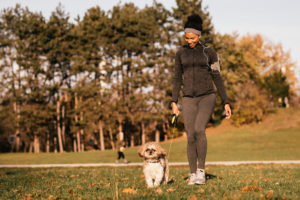
Hitting a daily step count of 8,000 per day, even at a leisurely pace, is associated with a longer and better quality life. In fact, it might be able to double your life expectancy over the next decade.
At least that’s what a recent study is suggesting.
After outfitting over 4,800 Americans with a hip accelerometer to track steps for a week, researchers found that those who took 8,000 steps per day had half the risk of death over the next ten years as those getting 4,000.
The most significant benefit was observed in heart health.
If you’re likely already getting about 3,000-4,000 unintentional steps per day running errands and doing chores, is 4,000 more really going to be a struggle?
Probably not, especially when you break it down to time. Setting aside about 30 minutes per day can easily allow you to pad another 4,000 to your daily total. Pick up the pace, and 30 minutes can quickly turn to 20.
Not convinced? Then consider how much of a role it could play in your likelihood of living or dying in the next ten years.
That might sound stark, but it’s nearly undeniable: walking might be the best form of exercise you can get. It encourages better circulation, improved metabolism, healthier veins, and a stronger heart.
The study was observational in nature and does not prove that walking extends life, but it is another piece of research to add to the pile of walking’s benefits.
Getting the most out of your daily walk requires a few simple factors.
Comfortable shoes are crucial. A well-fitting pair with a cushioning sole, support, and a breathable, mesh upper can limit discomfort and injury. Dressing in layers when it’s cool and wearing light colors can help you in the heat.
Going to an area where you feel safe is also recommended as is starting and finishing slow, giving your body a chance to warm up and cool down before and after your max speed.
A small time-investment can make a significant difference in the quality and length of your life. You’re doing it anyway, so why not walk just a little more if you can?